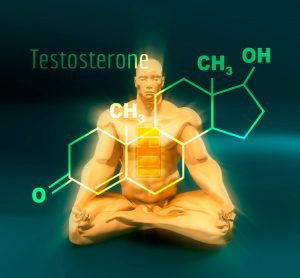Erectile Dysfunction (ED) is more prevalent than men know. Forty percent of men 40 years of age suffer from ED and 70 percent of men 70- years-old suffer from ED according to the Mayo Clinic. This statistic is sobering and common enough to encourage the discussion between a man and his doctor about what can be done to reverse this situation. There are many potential causes for ED that need to be determined prior to treatment with Testosterone Replacement Therapy.
Main Causes of Erectile Dysfunction:
- Emotional stress can impact a man’s sexual response. For example, going through a stressful divorce could cause ED. Performance anxiety and emotional stress are known to contribute to this condition. Counseling is often the best approach to treatment once low testosterone levels are ruled out.
- Unhealthy Lifestyle Choices such as too much alcohol and drug abuse are typical culprits for causing ED.
- Nerve damage caused by diseases like diabetes impairs sensation to the penis leading to impotence.
- Atherosclerosis, where cholesterol deposits clog the main artery to the penis, causes ED. This often signals the onset of serious coronary artery disease.
- Certain medications cause ED. Blood pressure medicines such as beta blockers, chemotherapeutics, and diuretics can impact sexual function. Common over-the-counter drugs such as NSAIDs and antacids are known culprits for lowering testosterone levels which also leads to ED.
Erectile Dysfunction Treatment
The good news is that erectile dysfunction is very treatable when diagnosed and treated early. A first step towards treating the problem is to see a doctor knowledgeable about diagnosing and treating low testosterone, and the various problems that come with that diagnosis. For instance, men with low testosterone often have an imbalance of estrogen in their bodies leading to male breast enlargement and weight gain. A well-informed doctor would test for this condition based on the appearance of his or her patient. The medicine to correct this imbalance is Anastrozole. Other imbalances are often detected in the initial bloodwork that are then addressed along with the low testosterone levels.
A man with normal levels of testosterone can still have erectile dysfunction due to some of the problems previously mentioned. In that case, the doctor would likely prescribe medicines such as Viagra, Cialis or Levitra. The medication is usually taken one hour prior to a sexual encounter. It is important to stress the importance of medical care and follow up for this treatment.
Men who experience ED due to low male hormone levels are well advised to begin testosterone replacement therapy (TRT). Low testosterone levels can be caused by either primary failure of the testicles to produce enough hormone, or it can be secondary to glands in the brain failing to signal the testicles to produce testosterone. Either way, TRT focuses on providing the patient with the correct amount of testosterone for their body. Laboratory tests help to establish the right dosage level.
Most men will experience erectile dysfunction at some point in their lives. Health professionals are starting to recognize the commonality of this problem and to offer solutions for getting men back on target to better health and enjoyable sex life. It all begins with a careful evaluation of what are the main causes of erectile dysfunction via laboratory tests and a thorough physical. Once a problem is determined, TRT usually fixes symptoms such as ED, fatigue, muscle loss, weight gain, and sleep problems associated with low testosterone levels. Men can look forward to a fairly swift turn around in their overall health and feel rejuvenated!




